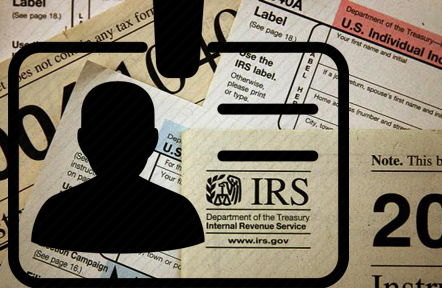Scapegoating Businesses for Illegal Immigration is Back in Vogue
 Authored by Loren Steffy and originally published on rationalmiddle.substack.com
Authored by Loren Steffy and originally published on rationalmiddle.substack.com
It’s becoming fashionable to blame business owners for illegal immigration again.
If that sounds familiar, that’s because it’s been tried before under the George W. Bush and Barack Obama administrations. It failed. Nevertheless, with immigration a pillar of the presidential election this year, states such as Arizona, Iowa and West Virginia have bills pending in their state houses that would hold business owners accountable for hiring the undocumented.
As with previous attempts to use employers as a cudgel against federal immigration policy failures, the plans rest on a federal system called E-Verify.
E-Verify is an online database created by the federal government in 1996 that compares workers’ I-9 forms, in which new hires state their immigration status, against Social Security records.
The problem is that Social Security cards are easily forged and numbers are easily manipulated. As printing technology has improved, undetectable forgeries have gotten better and cheaper than ever. Some undocumented immigrants use the numbers of their native-born children. Others find prison inmates who are willing to sell their numbers while they’re incarcerated. Residents of Puerto Rico, many of whom have Hispanic surnames and are legally issued Social Security numbers, are frequent sources of fake numbers.
Most famously, about 15 years ago, Todd Davis, the founder of the consumer protection company LifeLock, published his Social Security number on billboards, in newspaper ads and on websites to tout the effectiveness of his company’s identity theft protection. It was a huge gift to forgers. Davis’ number showed up on thousands of fake cards that cleared the E-Verify system. At one point in the mid-2000s, Houston labor attorney Jacob Monty documented 165 undocumented immigrants using Davis’ number just in the Houston area.
Employers are not experts in detecting forgeries. If they’re presented with a card that looks legitimate, and that clears E-Verify, they have no way of knowing if a worker is undocumented. What’s more, if they refuse to hire someone they merely suspect is undocumented, employers risk running afoul of federal laws that prohibit discrimination in hiring.
As one executive told me, the system is so ineffective, it actually makes it possible for employers to legally hire illegal immigrants.
In fact, meat processors have routinely been found to have undocumented workers in their plants, even though most major companies in the industry use E-Verify.
It is not, in other words, a system by which businesses can be held accountable fairly.
Eventually, the Department of Homeland Security may figure out that a worker’s identity doesn’t match a Social Security number. At that point, they may require that the employer fire the worker. But historically, DHS has rarely deported those workers, even if the department is the one that identified the fake identity.
So even when the system eventually works, it basically contributes to a process that is often derided as “catch and release.” And ultimately, most of the fired workers simply get hired by less scrupulous businesses who don’t even attempt to follow the law or bother with E-Verify. Driving undocumented workers deeper into the shadows does nothing to address the problem.
Yet some lawmakers are once again now touting the system as the latest attempt to crack down on illegal immigration, conveniently ignoring its well-documented shortcomings.
It’s one more example of states resorting to half-baked solutions in desperation because Congress steadfastly refuses to pass immigration policy reform.
Congress could enact laws — or for that matter the Biden administration could issue an executive order — that would allow the undocumented who pass a criminal background check to work legally and receive a tamper-proof ID that would let the government know who they are and what they’re doing. This would benefit employers, the economy, and the immigrants themselves. But so far, calls for such a program have been ignored in Washington.
Making employers the scapegoat for lawmakers’ intransigence didn’t work before, and it won’t work now. At the very least, if we want employers to keep the undocumented off their payrolls, they need tools that actually work.
Loren Steffy is the co-author of Deconstructed: An Insider’s View of Illegal Immigration and the Building Trades and executive producer of the Rational Middle Immigration series.








